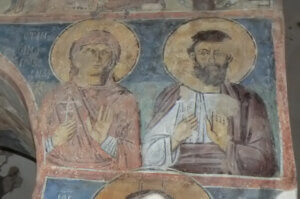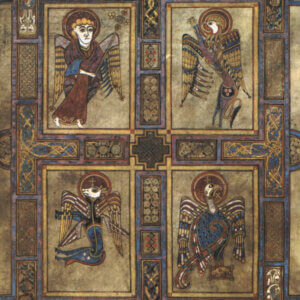You will not fear the terror of the night, nor the arrow that flies by day, nor the pestilence that stalks in darkness, nor the destruction that wastes at noonday.
—Psalm 91:5-6
For the early desert ascetics, noon was a rough time of day. It was then that their stomachs would growl from the day’s fasting; the sun was at its blistering height; much of the day’s work and prayer still remained to be done; it was then that fatigue started to take hold…
It was at this time that the devil would insert doubts, frustrations, and temptations to give up.
“Ugh, do I have to do this every day…forever?”
“A good meal and a nap sound so much nicer than ora et labora right now.”
“What am I doing this for, anyway?”
“Maybe I’ll take a day off and get back to it tomorrow.”
Does any of this sound familiar?
Probably, because the noonday devil—better known as the sin of acedia or “sloth”—afflicts us all. It is a sadness, an indifference, or a lethargy in the face of the work of holiness.
This lethargy is much more than mere laziness and doesn’t always manifest itself as sluggish inactivity.
In fact, in his superb book The Noonday Devil: Acedia, the Unnamed Evil of Our Times, Benedictine Abbot Jean-Charles Nault says that there are five principal manifestations of acedia. Drawing from several saints who wrote extensively on the subject, he describes these five as:
- A certain interior instability
- An exaggerated concern for one’s health
- Aversion to manual work
- Neglect in observing the Rule (i.e., the duties of one’s state in life)
- General discouragement
We’ll focus here on number 1, instability, because it is on full display in our society.
This instability isn’t just a change in mood: the saints describe it as a desire to change location—to wander in search of something to distract or entertain us—as an unconscious way to avoid dealing with whatever disturbance (or boredom) caused the instability.
These days, we don’t even need to wander in hopes of finding a distraction. Everyone has a smartphone in their pocket: a portal to an entire world, curated by algorithms to fit and manipulate our particular tastes and inclinations. And this portal is always just a hand’s reach away.
You’re seeing acedia everywhere now, aren’t you? It is, indeed, the unnamed evil of our times.
So how can we identify this instability and the other forms of acedia in our own lives? What can we do to counteract them? Where on earth do we begin our fight against the noonday devil?
Abbot Nault’s insightful book will give you the answers. Not only will you understand this evil and learn to spot its encroachments into your life—you will learn what tools you need to effectively combat it. Pick up a copy of this vital book today at The Catholic Company!
















